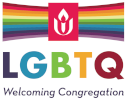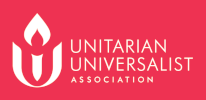Rev. David Robins, May 4, 2008
This sermon is indebted to a wonderfully imaginative idea presented by Rev. Peter Raible. Peter proposed that UUism might be thought of in metaphoric terms as soap. I have taken Peter’s idea, and connected it with our UU principles.
Describing Unitarian Universalism and our congregation sometimes requires metaphor, especially when I want to tickle and stretch my imagination. I become so dreadfully serious when asked about UUism, that I forget that in my experience, God comes more with a laugh and a smile. There is room for creativity here.
For example, Peter Raible, the onetime UU minister in Seattle Washington said “…from time to time those of us involved in working to grow our message of Unitarian Universalism are accused of trying to sell our faith as if it were soap. In good Zen fashion I have learned not to rebut that charge, but to go with the wave.” Religion is like soap in a way. Like religion, soap helps us to clean ourselves up, smell better, feel refreshed and new.
If I were to go to the store and pick out religion like I might choose between different bars of soap, which religious bar of soap would I choose? First of all, would I look at the bars of soap in packages of 3, 4, or 12 bars. Not UU’s. We come in individual bars. Impossible to buy a bunch of us. Next I look at the prices. Many of the bars are discounted because the manufacturers are in a price war with their competitors. We don’t have much in the way of competition. Our competition isn’t even religious. Our competition is the lure of traveling, or the lure of the Sunday newspaper and a pot of coffee or tea.
I’m looking for individually packaged bars of soap, with no display, because, after all, we’re the quiet religion that doesn’t like to attract any attention. So, there I am, standing in front of the soap section in the grocery store, looking for a bar of soap with no display, individually packaged, almost hidden in amongst the others, no discount stickers, and probably on the bottom shelf, out of the way and hard to find. There are a couple of options, the Castille soap or some really nice bars of oatmeal soap. But, just for the sake of creative analogy, I pick out a bar of the Neutrogena soap. Let’s go with the Neutrogena soap just for the fun of it.
“Neutrogena soap costs more than the average bar. It appeals to customers in a small niche market, probably less than 1% of all soap purchases. UUism is not for the seeker of the average religion.” (Raible) It costs more because I have to do the work myself of determining what I will do with my religious and spiritual freedom. I have to sort through my own conscience, find god if there be one inside me, determine what I believe gives my life meaning, and how to be in relation to others in a way that creates greater good and appreciative understanding. I want a soap that will treat me as an individual, not as another body. A soap that will respect my inherent worth and dignity.
Neutrogena soap is transparent. I can see right through it. Nothing hidden. No hidden agenda. No hidden ingredients. I want to see the world and other people through my soap, without putting layers of beliefs between myself and my world. I want to see the pain if it be pain, the joy if it be joy, the grief if it be grief, the peace and hope if it be peace and hope, the injustice if it be injustice, the love if it be love. I want to see the skin of life as it really is, through my religion. I want no impediments in my free and responsible search for truth and meaning. I want a direct experience of the transcending mystery and wonder which renews my spirit. I want direct experience which challenges me to continue to love the world and myself, in spite of the pain.
“Ordinary soaps may cause the skin to break out among the allergic, or to become itchy or raw. Neutrogena is mild and safe. UUism appeals to those who ‘break out’ from conventional religions. UUism is milder, avoiding harsh creeds and unnecessary judgmentalism that irritate the skin. It is safe for those who choose it themselves.” (Raible) I want a religion that accepts and nurtures me as I am, and that encourages me to spiritual growth through creative interchange with others in my congregation. I want a religion that offers me checks and balances by counseling me to heed the guidance of reason and the results of science, and that warns me against the idolatries of the mind and spirit.
“Neutrogena calls itself a natural soap. UUism calls itself a natural religion.” (Raible) UUism seeks to be in harmony with the natural world and with understandings of the natural world. UUism sees humans as an integral part of the natural world, as a part of the interdependent web of existence which deserves to be treated with respect and love.
“Most soaps are hard milled, that is produced by pressing together dehydrated flakes. Bathing with such soap leaves a film upon the skin and impairs snap back to normal ph. Many religions result from a pressing together of doctrines and creeds and cultural biases which impair the normal human factors.” ( Raible) I’m flakey enough as it is, without adding more to my religious skin. I’ll accept pressed together principles and purposes. I’ll accept pressed together wisdom from the world’s religions which opens my mind to a greater ethic and enlarged spiritual life.
Neutrogena is composed of the finest ingredients. Like other religions, we seek the finest qualities of character for ourselves. UUism, like other religions asks each person to utilize the finest ingredients of transforming love, compassion, justice and ethical living. I am imperfect in my words and actions, but with the right religious soap, I can wash myself with hope, forgiveness, and greater understanding, step out of the shower and start a new day.
“Neutrogena is cooked slowly and left to solidify naturally. Unitarian Universalists believe in a slow development of one’s religion, rather than sudden conversions. UUism holds that I should solidify naturally into my religious practice rather than having another religious practice pressed upon me.” (Raible) UUism believes in the slow movement of the democratic process in congregational life, as frustrating and as disappointing as that can seem at times.
Finally, “Neutrogena dissolves rapidly if left in damp or wet places. The same thing happens to Unitarian Universalists when left alone and unused.” (Raible) I was made to be used, not to be saved. A bar of soap was made to be useful, like a person, and like a religion. A bar of soap gets used up, just like me.
I am grateful for the freedom of this faith, and the responsibility of that freedom to seek to do and to speak the good, the loving, the fair, the truthful.
READING…May 4, 2008…Rev. David Robins.
Leap of Faith
I have words and phrases and appear and reappear in my life, until one day I take notice, as if there is a message I am supposed to be paying attention to.
Many of the people who I meet in the Monadnock area, speak of coming here as a ‘leap of faith.’ They had been living elsewhere, and they were drawn to the quality of the people and the environment. Many speak of being offered a “dream job” in this area. Others had no job, but trusted that something would turn up.
In my interview with this church’s search committee, Peggy Brown asked us if we were willing to take a ‘leap of faith’ and consider coming to Peterborough. This question was unusual for us, coming from spending half of our lives in the Midwest. No one moves to the Midwest as a ‘leap of faith.’ People move to the Midwest as a nod to certainty rather than uncertainty…as a safe step rather than as a questionable leap. We knew people who yearned to move from the Midwest to one or another coast as soon as they could in a ‘leap of faith.’
I think of faith as also meaning ‘trust.’ A ‘leap of faith’ is having a trust that events may not go according to plan, and that there will be stumbling blocks, and surprises…but that one will find a way to accept and celebrate the leap rather than regret it.
We trusted our leap of faith to come here, and we are celebrating our trust in the process and in the outcome, and in the unfolding events.
The phrase, ’leap of faith’ is attributed to a melancholy Danish philosopher and religious thinker named Soren Kierkegaard. He is considered to be the first existentialist. Not surprising, as Nordic mythology saw life as tragic, redeemed only by acts of heroism, such as leaps of faith. The term that he used however, is ‘leap to faith.’ For him, he sought a way to leap from distrust and skepticism, to a faith that Christianity was to be trusted and that it made sense in mysterious inexplicable ways.
For example, he pondered the faith statement that Jesus is 100% human and 100% God. He knew that this was rationally and empirically irreconcilable. So he made a leap to faith in a belief in this paradox. He leapt from non-faith to faith.
Most UU’s have faith and are trusting in the universe. We tend not to have a tragic worldview. Our UU religious forebearers for 2000 years quibbled over what percentage human and God Jesus was, but have agreed that Jesus modeled leaps of faith in radical, transforming love. Long ago, we came to the conclusion that God or nature gave us reasoning ability and we ought to use it to come to conclusions about faith claims.
Even so, our UU tradition is a paradoxical mix of unorthodox Christianity, transcendentalism, deism , paganism and humanism. A person has to have a lot of faith and trust to join our churches.
Whether you are ‘leaping to faith’ or ‘leaping in faith’, you are participating in one of the oldest spiritual acts, trust, or a willingness to trust. Life is a bit of a trapeze act in this way, and congregations might be thought of as a religious safety net. We hold each other’s hearts when the leap hurts.


